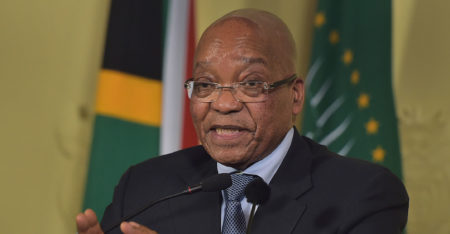
South African bonds and the rand fell after President Jacob Zuma bolstered his position by fending off calls from senior ruling party officials to quit.
South Africa’s benchmark rand bond due in December 2026 reversed gains, with the yield rising 12 basis points to 9,03% as of 12.10pm in Johannesburg. The rand fell 1,6% to R13,84/US$, heading for its weakest closing level since 28 December, after strengthening as much as 1,2% earlier.
The reversals came after Zuma survived calls to resign by members of the ANC at a meeting of the party’s national working committee on Tuesday. The calls were sparked by Zuma’s decision to fire his finance minister and stack the cabinet with loyalists, which led to S&P Global Ratings cutting the nation’s credit assessment to junk on 3 April.
“He seems to be surviving for now,” said Koon Chow, a strategist at Union Bancaire Privee in London. “The consequences are playing out. But there’s still hope that he will be recalled. If hope was completely crushed, the currency wouldn’t move by this modest amount. There’s still hope he’s overstepped the market and that the institutions will force him to step down early.”
The rand has dropped 10% from a year-to-date high on 24 March as investors speculated that Zuma may dismiss finance minister Pravin Gordhan, which he did on 30 March, replacing him with Malusi Gigaba. The inability of Zuma’s critics within the ANC to force him to step aside heightens chances that an opposition-sponsored vote of no confidence in parliament will fail if it goes ahead.
Markets would view Zuma quitting early as a “ blue sky moment”, Mary Curtis, chief South Africa equity strategist at RMB Morgan Stanley, said last week. — (c) 2017 Bloomberg LP




